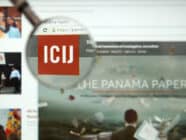- 128Shares
- Facebook69
- LinkedIn44
- E-mail1
- Buffer14

International study reveals that legal frameworks to protect journalism sources are often outdated and inadequate.
Legal frameworks to protect journalism sources are increasingly at risk according to a new international study of 121 countries. The study concludes that without adequate legal protection, potential sources and whistleblowers may never come forward to tell their stories. This could threaten the future of investigative journalism.
Protecting Journalism Sources in the Digital Age reveals that legal source protection frameworks in many countries are being overridden by national security and anti-terrorism legislation, undercut by surveillance, and threatened by mandatory data retention policies.
Source protection frameworks are outdated when it comes to regulating the collection and use of digital data, the study found. For example, whether information recorded without consent is legally admissible; and whether digitally stored material gathered by journalists is covered by existing source protection laws.
Researchers examined legal frameworks in each country, drawing on academic research, online repositories and reportage by news and human rights organisations. More than 130 surveys were completed and qualitative interviews conducted with nearly 50 international experts and practitioners.
While traditional legal frameworks for source protection remain strong in some states, and are progressing in others, they are under significant risk from a combination of developments. These include digital disruption and overreach in the introduction of security measures.
The study, produced by WAN-IFRA for UNESCO, concludes that unless journalistic communications are recognised, trust in the confidentiality of sources could be weakened. As a result much public interest information, such as that about corruption and abuse, could remain hidden.
“Without confidential sources, many acts of investigative story-telling – from Watergate to the Panama Papers -may never have surfaced,” the study acknowledges.
Julie Posetti, the report’s author and former World Editors Forum/WAN-IFRA Research Fellow, said the study is being published “in the context of unprecedented digital risks to confidential journalistic communications – from security agencies intercepting reporters’ emails, to US customs officials seizing journalists’ phones.”
Posetti referred to a recent case in Australia in which the Australian Federal Police admitted they illegally accessed a journalist’s metadata. “It’s utterly chilling, and urgent reform is required,” Posetti said.
“I genuinely hope that the study serves as an effective tool in the struggle to defend investigative journalism dependent on confidential sources, and the efforts of whistleblowers, in the interest of strengthening democracy,” she added.
13 key findings:
1. The issue of source protection has come to intersect with the issues of mass surveillance, targeted surveillance, data retention, the spill-over effects of anti-terrorism/national security legislation, and the role of third party Internet companies known as “intermediaries”.
2. Individual states face a need to introduce or update source protection laws.
3. To optimise benefits, source protection laws should be strengthened in tandem with legal protections extended to whistleblowers, who constitute a significant set of confidential journalistic sources,
4. There is a need to educate both journalists and citizens in digital safety.
5. Journalists and others who rely on confidential sources to report in the public interest may need to train their sources in secure methods of contact and information-sharing.
6. Legal and regulatory protections for journalists’ sources are increasingly at risk of erosion, restriction and compromise.
7. 84 UNESCO Member States out of 121 studied (69%) for this report demonstrated developments relevant to the protection of confidentiality of journalistic sources, mainly with actual or potential impact, between 2007 and mid-2015.
8. Source protection laws need to cover journalistic processes and communications with confidential sources – including telephone calls, social media, messaging apps, and emails – along with published journalism that depends on confidential sources.
9. Transparency and accountability regarding both mass and targeted surveillance, and data retention, are critically important if confidential sources are to be able to continue to confidently make contact with journalists.
10. Without substantial strengthening of legal protections and limitations on surveillance and data retention, investigative journalism that relies on confidential sources will be difficult to sustain in the digital era, and reporting in many other cases will encounter inhibitions on the part of potential sources
11. It is recommended to define ‘acts of journalism’, as distinct from the role of ‘journalist’, in determining who can benefit from source protection laws
12. Journalists are increasingly adapting their practice in an effort to partially shield their sources from exposure, but steps to limit anonymity and encryption undermine these adaptations.
13. The financial cost of the digital era source protection threat is significant (in terms of digital security tools, training, and legal advice), as is its impact on the production and scope of investigative journalism based on confidential sources.
The report is available to download here.
Photo: Flickr CC, Eric Stensland CC licence
- 128Shares
- Facebook69
- LinkedIn44
- E-mail1
- Buffer14
Tags: digital news, Investigative Journalism, Journalism, journalism sources, Julie Posetti, legal framework, Research, study, UNESCO, Wan-Ifra, whistleblower














































